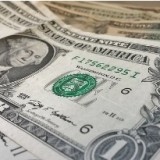
Posted on 27 January 2015.
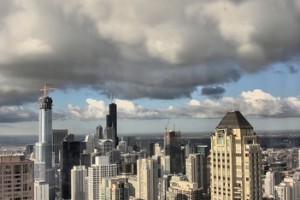 At the tail end of 2014, China quietly surpassed the USA as the biggest economy in the world. The giant country, with a population of 1.4 billion has seen a huge rise over the last decade. Its strong period of growth can be attributed to their stock capital. The sheer number of factories and manufacturing units is overwhelming. Most of this took place in the period between 1978 and now. In 1978, China reformed its entire economic system. It embraced a free market economy and allowed capital to flow freely. It open up the entire system away from a communist tradition.
At the tail end of 2014, China quietly surpassed the USA as the biggest economy in the world. The giant country, with a population of 1.4 billion has seen a huge rise over the last decade. Its strong period of growth can be attributed to their stock capital. The sheer number of factories and manufacturing units is overwhelming. Most of this took place in the period between 1978 and now. In 1978, China reformed its entire economic system. It embraced a free market economy and allowed capital to flow freely. It open up the entire system away from a communist tradition.
Although China would not yet be considered a ‘superpower’ it certainly is rising. Its market rests strongly on an industrial economy. It is not yet a pioneering technology in the way that USA, UK or Japan are. Nevertheless, it does now have the biggest economy in the world. That makes it a major player on this planet. As such, foreign investment is flooding towards to the vast country.
The UK, who invested over £6 billion in China over the last five years, has made a grand claim. That current investment will be quadrupled in the same period. By 2020, the UK will invest over £26 billion in the country. Where exactly that investment will go, we are unsure. However, looking at the current state of the economy and investment, we can make an educated guess. China has grown large and powerful in the manufacturing industry. However, like its large neighbor, Russia, it has its eyes firmly on the future.
The next period of investment looks to fall in the energy sector. China has been slow to adopt climate control sanctions throughout its country. It is the single biggest (current) contributor to carbon emissions on the planet. However, at the end of 2014, it pledged to hit a peak emissions output and begin to reign it in. That means investing in new industry. It means embracing new concepts and technology. Much of the funding will come from foreign investment.
The country will also begin to move away from traditional industry and into administration. The move has already begun but will increase significantly over the next five years. If you’ve ever asked, “what does a business administration professional make as a salary?” you’re not the only one. China is realising that the future is in business admin.
China has also been notoriously strict with its media access. As modern nations go, it is still very secretive and has control over much of the media. This is also slowly changing and it is opening up its media and entertainment channels. This gives it a more universal appeal for foreign investment. UK are not the only nation to increase investment. Hong Kong is currently its largest contributor and looks set to increase. Japan, Singapore, USA and Germany are also setting course for further investment.
China has proved itself as a major player in the world of industrialisation. Now it looks to take on board foreign investment (and invest itself in other nations) to move forward. The biggest leaps will come in the energy sector, the business admin sector and the media.
Posted in Economy, Finance

Posted on 21 January 2015.
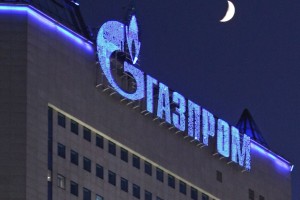 The international rating agency Moody’s Investors Service decreased the credit ratings of eight Russian non-financial companies. The credit rating of Gazprom in foreign currency was reduced from “Baa2″ to “Baa3″ and the rating in national currency was decreased from “Baa1″ to “Baa2″. The short-term foreign currency rating has been reduced from “Prime-2″ to “Prime-3″ and the national level is confirmed “Prime-2″.
The international rating agency Moody’s Investors Service decreased the credit ratings of eight Russian non-financial companies. The credit rating of Gazprom in foreign currency was reduced from “Baa2″ to “Baa3″ and the rating in national currency was decreased from “Baa1″ to “Baa2″. The short-term foreign currency rating has been reduced from “Prime-2″ to “Prime-3″ and the national level is confirmed “Prime-2″.
Rating of OAO AK Transneft and the rating of unsecured debt securities issued to the subsidiary TransCapitalInvest Ltd were reduced from “Baa2″ to “Baa3″ with a negative outlook. Also the rating of Rosneft and its subsidiaries Rosneft Finance SA, Rosneft International Finance Limited and Rosneft International Holdings Limited were reduced from “Baa3″ to “Baa2″. The same is the situation with Gazprom oil and its subsidiaries GNP Capital SA, OAO Federalynaya passazhirskaya company, OAO LUKOIL and its subsidiary LUKOIL International Finance, GMK Norilyskiy Nikel and its subsidiary MMC Finance Ltd, OAO RZD and subsidiary RZD Capital Plc. The ratings of the Corporation Irkut is dropped from “Ba2″ to “Ba3″, and OAO FSK EЭS from “Baa3″ to “Ba1″. All ratings have a negative outlook, which means that it can be further reduced.
Ratings of non-financial corporations affected by today’s decision are under surveillance because of the review given the downgrading of sovereign debt securities. Finances Wire Journal recall that on Friday, the agency downgraded Russia to the lowest investment grade, after the sharp decline in oil prices and the worst currency crisis of 1998 affected the growth of the Russian economy.
“The severity and likely sustainable oil shock, together with very limited international access to capital due to ongoing sanctions undermines economic fundamentals and increased financial pressure on the public and private sectors”, said Moody’s. “The significant decline in oil prices and the ruble will further erode the already weakened growth prospects in the medium term”.
Russia is on the brink of recession, after oil, the biggest export product of the country fell by more than 50% since June. The ruble depreciated again by 47% in the last six months of funding restrictions and export bans imposed by the US and its allies after annexing of Crimea Putin, led investors to avoid currency. The Russian central bank raised its key interest rate six times since March to 17% and spend 88 billion USD in 2014 to support the currency.
Posted in Business, Finance

Posted on 21 January 2015.
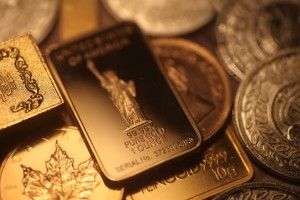 Gold price rose above the psychological barrier of 1,300 USD per ounce for the first time since August amid investors’ appetite for assets havens in view of the political and economic uncertainty in Europe. The futures on the gold with delivery in February rose to 1,300.30 USD per ounce, considering the daily increase of 0.47 per cent. The level is the highest since 12th August 2014. Meanwhile silver with March delivery rose by 1.68% to 18.258 USD per ounce, which in turn is the highest level since 10th September 2014.
Gold price rose above the psychological barrier of 1,300 USD per ounce for the first time since August amid investors’ appetite for assets havens in view of the political and economic uncertainty in Europe. The futures on the gold with delivery in February rose to 1,300.30 USD per ounce, considering the daily increase of 0.47 per cent. The level is the highest since 12th August 2014. Meanwhile silver with March delivery rose by 1.68% to 18.258 USD per ounce, which in turn is the highest level since 10th September 2014.
Precious metals are enhanced by gold confirms the rise amid continuing strong demand for ETF with a view to growing speculation that the European Central Bank (ECB) will increase economic incentives. Silver and platinum you continue to follow closely the movement of the yellow metal. Meanwhile, assets of the largest in the world, backed by the gold exchange traded fund SPDR Gold Trust rose to 742.24 tons on Tuesday.
Furthermore forthcoming ECB markets have turned their attention to the continuing problems in Ukraine, political uncertainty in Greece and turmoil caused by the decision of the Swiss central bank removed the ceiling for appreciation of the franc against the euro. The next big event, however, is undoubtedly the meeting led by Mario Draghi institution on Thursday, then likely the Eurozone will acquire quantitative easing similar to asset purchases in Japan.
Posted in Commodities

Posted on 19 January 2015.
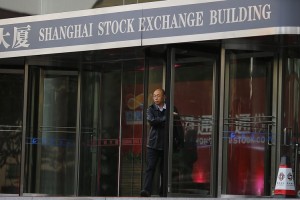 Chinese shares tumbled on Monday due to sharp sell-offs in the financial sector. The positive performance on Wall Street late last week did support the growth rates of other Asian markets. The main Shanghai Composite Index fell with over 7%, led by declines in most financial shares fell by the maximum of 10%. The reason was that regulators have accused local brokers in illegal activities in margin trading. Losses came a day before the release of data for China’s economic growth in the fourth quarter. Sitic Securities, Haitong Securities and Everbright Securities were just some of the companies that erased 10% due to the repression of the authorities in relation to the margin lending.
Chinese shares tumbled on Monday due to sharp sell-offs in the financial sector. The positive performance on Wall Street late last week did support the growth rates of other Asian markets. The main Shanghai Composite Index fell with over 7%, led by declines in most financial shares fell by the maximum of 10%. The reason was that regulators have accused local brokers in illegal activities in margin trading. Losses came a day before the release of data for China’s economic growth in the fourth quarter. Sitic Securities, Haitong Securities and Everbright Securities were just some of the companies that erased 10% due to the repression of the authorities in relation to the margin lending.
It was a bloodbath for Chinese stocks. Although this is a blow to the shares in the short term, attitudes seem positive, as officials continue to carry out reforms and to limit excessive speculation, commented analysts.
In Hong Kong Hang Seng cpadna c nearly 2%, a China Enterprises index wiped more than 5%.
The Japanese benchmark Nikkei 225 index closed above 17,000 points, recovering from the loss of almost 1% on Friday. Among the biggest winners were Sony and Itochu, added more than 2%. Sharp wiped almost 9% after the Nikkei newspaper reported that the company can provide a net loss of “billions of JPY” for the current financial year.
The AUstralian benchmark S&P ASX 200 terminate five straight sessions of losses, moving away from one-month low of 5,299 points on Friday. The mining companies performed strongly after the appreciation of copper. Oz Minerals and Sandfire Resources added respectively 8% and 7%. Macquarie expand by more than 5% after predicting 10-20% growth in annual profit.
South Korean KOSPI returned to growth after a loss of 1% on Friday, boosted by increases in manufacturers of ships. Hyundai Heavy Industries and Daewoo Shipbuilding rose by 9%.
Posted in Finance, Indexes

Posted on 19 January 2015.
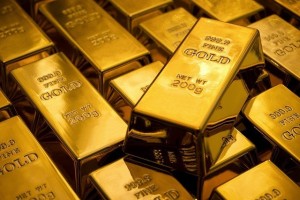 The price of gold rose to its highest level in more than four months on Friday amid turmoil in the foreign exchange market after the decision of the Swiss Central Bank to remove the ceiling against the EUR. The Gold futures with February delivery reached a maximum of value of 1,292.40 USD per ounce for the last session, which is the highest level since 2nd September 2014. Finally the gold futures price settled at 1,276.90 USD per ounce, adding 0.96%. A day earlier, the gold jumped with 2.45% to close at 1,264.80 USD per ounce. For the week, the yellow metal rose by 4.76%, taking into account the second consecutive weekly increase.
The price of gold rose to its highest level in more than four months on Friday amid turmoil in the foreign exchange market after the decision of the Swiss Central Bank to remove the ceiling against the EUR. The Gold futures with February delivery reached a maximum of value of 1,292.40 USD per ounce for the last session, which is the highest level since 2nd September 2014. Finally the gold futures price settled at 1,276.90 USD per ounce, adding 0.96%. A day earlier, the gold jumped with 2.45% to close at 1,264.80 USD per ounce. For the week, the yellow metal rose by 4.76%, taking into account the second consecutive weekly increase.
Meanwhile, silver futures for March delivery jumped 3.79% on Friday to settle at 17.75 USD per ounce at the end of trading. The level was the highest since 24th September 2014. In this way the silver futures with March delivery added 7.54% for the week, taking into account also the second straight weekly growth.
The prices of precious metals rose after Thursday Swiss Central Bank removed the minimum exchange rate of 1.20 CHF per EUR, introduced in September 2011. The central bank also cut more negative interest on overnight deposits from -0.25% to -0.75%, which is a move designed to discourage investors to buy CHF.
The EUR fell to a record low of 0.8696 CHF on Thursday and ended the week with a loss of over 17%. The pair USD/CHF tumbled to 0.7360, which is the lowest level since August 2011, and ended the week with a loss of almost 15%.
Gold is often seen as an alternative currency and refuge in times of global economic uncertainty. The Continuing speculation what will be the action of the European Central Bank after its meeting on 22nd January 2015. A possible reduction in interest rates and providing additional incentives are likely to further support the precious metals.
Meanwhile, the dollar index ICE, which measures the strength of the greenback against a basket of six major currencies, ce rose 0.57% to 93.05 points, taking into account their fifth straight week of growth.
One of the main reasons are the differences in monetary policies in the US and Europe. Meanwhile the ECB will likely continue to loosen monetary conditions in Europe, the Fed still wondering when to take the first rise in rates after the crisis of 2008 is expected institution to resort to people in the middle of 2015.
Posted in Commodities, Finance

Posted on 16 January 2015.
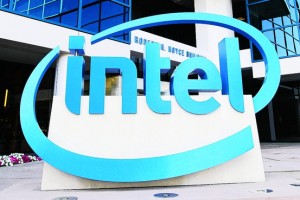 The largest world producer of Intel chips benefit from slowing decline in the PC market and strong business servers. Intel revenue increased by 6.4% in Q4 2014 to 14.72 billion USD, while the profit increased by 39% to 3.7 billion USD. In the post-trading shares initially fell by about 2%. The results show once again the problems Intel’s business with smartphones and tablets. The total calculated Intel revenue for 2014 amounted to 55.8 billion USD, as 49 billion USD from them by the divisions of PCs and servers.
The largest world producer of Intel chips benefit from slowing decline in the PC market and strong business servers. Intel revenue increased by 6.4% in Q4 2014 to 14.72 billion USD, while the profit increased by 39% to 3.7 billion USD. In the post-trading shares initially fell by about 2%. The results show once again the problems Intel’s business with smartphones and tablets. The total calculated Intel revenue for 2014 amounted to 55.8 billion USD, as 49 billion USD from them by the divisions of PCs and servers.
For the last quarter division and mobile telecommunications chips reported unusual negative revenue 6 million USD, as ultimately Intel pays prompting manufacturers to use its processors. The division reported an operating loss of 1.11 billion USD.
The generosity in the mobile business is financed by proven sources of money - PCs and servers for data centers. Intel is a key beneficiary of the generally somewhat better business with laptops and desktops. If sales of PCs declined by 10% in 2013, this year’s market research showed a drop of no more than 2%.
The Intel sales revenue in the chip division increased by 3% to 8.87 billion USD. This division takes care of about 60% of the entire business of Intel. The net operating profit jumped by 18.7% to 4 billion USD. In division server sales revenue rose by a quarter to nearly 4.1 billion USD. The operating profit in the division rose by 39% to over 2.2 billion USD.
The young business with chips for network devices has brought a quarterly operating profit of 185 million USD on revenue of almost 600 million USD. Intel, which is based in Santa Clara, California, however, continues to enjoy a solid financial footing. The company ended the year with 14.1 billion USD in cash, although pay 4 billion USD in the form of dividends and share buybacks over 10 billion USD.
Posted in Business, Finance

Posted on 16 January 2015.
 The consumer prices in Germany remained dangerously close to the possibility of falling into stagnation, confirmed the Federal Statistical Office (Destatis) in its final report in December. The news is the latest sign that inflation in the euro area gradually passes in negative territory, which will probably force the European Central Bank (ECB) to take more decisive action. Inflation in Germany slowed to 0.2% YoY, but grew with 0.6% MoM. The level was the lowest since October 2009. The preliminary data presented earlier in the month were slightly more optimistic and showed annual inflation rate of 0.4%.
The consumer prices in Germany remained dangerously close to the possibility of falling into stagnation, confirmed the Federal Statistical Office (Destatis) in its final report in December. The news is the latest sign that inflation in the euro area gradually passes in negative territory, which will probably force the European Central Bank (ECB) to take more decisive action. Inflation in Germany slowed to 0.2% YoY, but grew with 0.6% MoM. The level was the lowest since October 2009. The preliminary data presented earlier in the month were slightly more optimistic and showed annual inflation rate of 0.4%.
Measured on a monthly basis, the German inflation remained unchanged after zero growth in the previous month. The result confirmed the initial assessment. Separate measure specifically designed to enable a comparison between European inflation data - ie. harmonized consumer price index showed inflation of 0.1% on a monthly and annual basis. Analysts predicted levels of 0.2%. The news came amid debate in Europe whether the ECB to resort to incentives, including the purchase of government bonds because of the danger of falling into a deflationary spiral. Germany is the main center of opposition to quantitative easing, but the weakening of the growth of prices in the country can reassure the ECB President Mario Draghi.
Posted in Economy, Finance

Posted on 15 January 2015.
 The giant in electronics RadioShack may claim for bankruptcy protection in February. Based in Texas, USA, the company is in talks with another company to acquire a significant portion of the shares by which to avoid bankruptcy. The talks, however, may not lead to a deal that will put RadioShack with the need to seek other options for debt restructuring, which excludes sale. According to the information RadioShack has reached out to potential lenders who could provide loan to finance the action before the case of bankruptcy. Company representatives were not available for comment.
The giant in electronics RadioShack may claim for bankruptcy protection in February. Based in Texas, USA, the company is in talks with another company to acquire a significant portion of the shares by which to avoid bankruptcy. The talks, however, may not lead to a deal that will put RadioShack with the need to seek other options for debt restructuring, which excludes sale. According to the information RadioShack has reached out to potential lenders who could provide loan to finance the action before the case of bankruptcy. Company representatives were not available for comment.
The retailer, which announced better than expected loss for the third quarter of 2014, warned in September there will be a possibility of bankruptcy. Subsequently, the fund Salus Capital Partners said it would provide 500 million USD to support the company to finance its operations. The shares of RadioShack fell by almost 60% since September, when the company announced the possibility of bankruptcy. At the end of trading in the US on Wednesday a security worth 0.41 USD.
Posted in Business

Posted on 15 January 2015.
 Music streaming service Spotify got 2.5 million new subscribers who pay for its services, and total 10 million subscribers in the last two months of 2014. This is despite increasing competition and criticism from the stars to the service. Spotify announced that at the end of 2014 had a total of 60 million active users, 15 million of them using the paid service, who pay a monthly fee of 10 USD.The growth of the company market stake and customers is with 40% compared to 40 million active users in May last year.
Music streaming service Spotify got 2.5 million new subscribers who pay for its services, and total 10 million subscribers in the last two months of 2014. This is despite increasing competition and criticism from the stars to the service. Spotify announced that at the end of 2014 had a total of 60 million active users, 15 million of them using the paid service, who pay a monthly fee of 10 USD.The growth of the company market stake and customers is with 40% compared to 40 million active users in May last year.
Spotify has its own business model that combines paid and free service. It was in the center of the discontent of the musicians on remuneration paid to their company. Last year, Spotify published detailed information about the way in which remuneration is paid to appease the angry artists, but many of them continue the angry communication. Taylow Swift decided to withdraw her catalogue from the music service. Eventually her album “1989” proved to be the best-selling 2014 with 3.66 million copies sold. In turn Spotify continually defend its business model and argues that the expansion will grow and remuneration of performers. In the blog post that the company made in November, the CEO of the company Daniel Ek said that the business model of Spotify e essential for its growth.
Music streaming fast becoming the number one choice for users who want to listen to music. Streaming reported 54% growth from 106 billion listened songs in 2013 to 164 billion songs listened in 2014. The paid music downloads even declined by 12% last year. In 2013 downloaded songs were 1.2 billion, while in 2014 - 1.1 billion.
Posted in Business
Posted on 14 January 2015.
 Training has always been a vitally important element when negotiating the business world. As the old saying goes, a company is only as good as its employees. So, it should come as little surprise that most of the firms on the global top fifty list spent more on training during 2014 than ever before. That was the case, regardless of the fact that profits were down, and the economy was less than perfect. Why is that? Well, we’ve spoken to a few experts over the last couple of days to find out their opinions. Most of them agree that the top brands all have the same strategies in mind. Even small business owners have increased their training budgets, and here’s why…
Training has always been a vitally important element when negotiating the business world. As the old saying goes, a company is only as good as its employees. So, it should come as little surprise that most of the firms on the global top fifty list spent more on training during 2014 than ever before. That was the case, regardless of the fact that profits were down, and the economy was less than perfect. Why is that? Well, we’ve spoken to a few experts over the last couple of days to find out their opinions. Most of them agree that the top brands all have the same strategies in mind. Even small business owners have increased their training budgets, and here’s why…
Planning for the future
In times of poor economic growth, business owners with enough cash in the bank to keep their companies afloat find that planning for the future is a wise move. Indeed, that is one of the reasons more companies are using performance bonds at the current time. Just become income has dropped that doesn’t mean they stop investing in their staff. When the markets are a little shaky, many CEO’s take some time out to work on their next growth strategy. So, it makes sense to ensure all staff have the right training for the road ahead.
Take Amazon for example. They plan to move towards launching a new grocery selling site over the next twelve months. They aim to complete with the likes of Tesco and Asda to become one of the country’s leading food suppliers. That is why they spend extra time, money, and effort bringing their team up to standard.
Reducing tax bills
We all know how much attention big businesses get in the media for paying small amounts of tax. Like it or not though, there is nothing illegal in the way they choose to operate. Companies like Google and Facebook might land themselves in hot water if they continue down that path forever, most are more than willing to avoid as much tax as possible. One of the best ways of doing that is to increase spending. Seminars for injection molding, marketing, and other subjects all have a cost. By putting more staff through the best training, less money is given to the taxman. That obviously benefits the business in question.
Putting people first
Some experts believe that increased amounts of spending on training could be a sign of more conscientious business practices. While some firms consider their employees to be nothing more than a number on their wage sheets, others are known to value their staff. As much of the business training undertaken in 2014 would benefit people who work for numerous companies, it helps staff to increase their prospects. Getting as many qualifications as possible might make their lives easier if the business they work for dissolved in the near future. In the meantime, their new skills can be used to progress their current employers ambitions.
Will spending on business training continue to rise as we move through 2015? It’s hard to say. However, most bosses are more than aware of the benefits allowed when they have well educated team members. So, things are looking good.
Cydcor Offices
Posted in Comments
 At the tail end of 2014, China quietly surpassed the USA as the biggest economy in the world. The giant country, with a population of 1.4 billion has seen a huge rise over the last decade. Its strong period of growth can be attributed to their stock capital. The sheer number of factories and manufacturing units is overwhelming. Most of this took place in the period between 1978 and now. In 1978, China reformed its entire economic system. It embraced a free market economy and allowed capital to flow freely. It open up the entire system away from a communist tradition.
At the tail end of 2014, China quietly surpassed the USA as the biggest economy in the world. The giant country, with a population of 1.4 billion has seen a huge rise over the last decade. Its strong period of growth can be attributed to their stock capital. The sheer number of factories and manufacturing units is overwhelming. Most of this took place in the period between 1978 and now. In 1978, China reformed its entire economic system. It embraced a free market economy and allowed capital to flow freely. It open up the entire system away from a communist tradition.




















